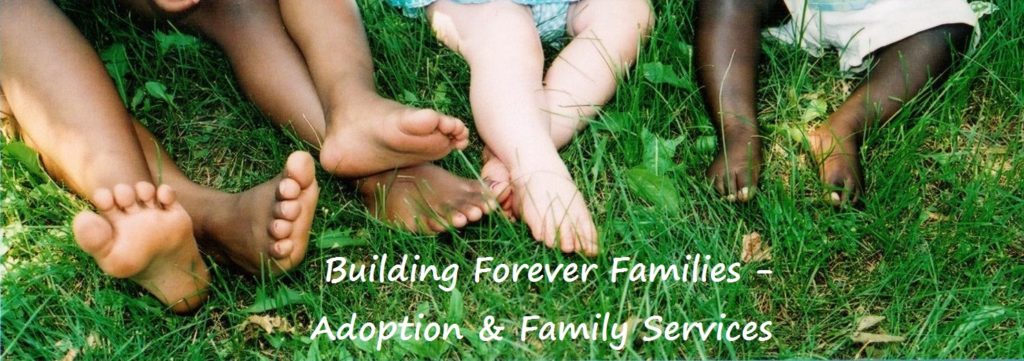Therapy for your adopted child is a pivotal step in fostering their healthy development. Although initially daunting, approach this decision with an open mind and heightened awareness. Within this comprehensive guide, we’ll delve into eight critical aspects to contemplate before initiating the transformative journey of therapy for adopted children. Navigating these considerations will not only enhance your understanding but also provide valuable insights into creating a supportive and nurturing environment for your child’s well-being. Take deliberate steps towards their mental health, ensuring a foundation for resilience and growth

Examine Your Biases
Before delving into therapy, it’s crucial to reflect on your biases regarding mental health treatment. Acknowledge that biases exist and can influence your perspective. Some communities stigmatize therapy, associating it with shame or embarrassment. It’s essential to challenge these biases, creating a safe space for your child to discuss their mental health without judgment. Resources like Implicit Bias and Mental Health articles, Unconscious Bias Training, and the Anti-Defamation League’s bias resources can assist in self-reflection.
Navigate the Research Landscape
The ongoing debate in the psychological community regarding the mental health challenges faced by adopted children remains dynamic. Despite persistent gaps in research, significant progress is underway. For parents considering therapy for adopted children, delving into current research is essential for making informed decisions.
As the debate evolves, new insights emerge, contributing to a more nuanced understanding of the unique mental health landscape for adopted children. Engaging with the latest research can empower parents with up-to-date knowledge, enabling them to navigate the complexities of therapy choices.
Furthermore, understanding that research is a dynamic process helps parents appreciate the evolving nature of therapeutic interventions for adopted children. As new studies emerge, they shed light on previously unexplored aspects, providing a more comprehensive understanding of the challenges and effective strategies.
Recognize Warning Signs
Understanding when your child might benefit from therapy is crucial. Initially, avoid hastily jumping to a diagnosis; instead, foster awareness of subtle signs. Look for indicators like genetic and family history, potential exposure to substances, experiences of loss, trauma, frequent relocations, and exposure to various -isms. According to John Sobraske, it’s imperative to emphasize the importance of thoroughly examining all potential factors that could impact a child’s mental health. Take a comprehensive approach to recognizing warning signs, considering the intricate interplay of various elements that contribute to your child’s well-being.
Acknowledge and Address Trauma
Many adopted children endure trauma from separation from their biological family, creating lasting emotional scars. Recognizing and validating this trauma, especially during pre and postnatal stages, is vital for their well-being. The concept of Complex-PTSD (C-PTSD) provides insight into the multifaceted nature of such trauma, emphasizing its intricate layers. Engaging in open conversations that not only acknowledge but also validate your child’s unique experiences can be transformative, fostering a sense of understanding, empathy, and healing within your family dynamic. Embrace this holistic approach to promote your child’s emotional resilience and overall mental health.

Cultural Sensitivity in Mental Health Treatment
Understanding your child’s cultural background is integral to effective mental health treatment. Start by educating yourself on their culture, fostering trust and creating an environment where their opinions hold significance. Additionally, if applicable, consult with the birth family. This collaborative approach provides valuable insights into their cultural perspectives on mental health, enriching the therapeutic process. Cultural awareness not only enhances communication but also ensures a respectful and inclusive environment for your child’s mental well-being. Explore these cultural nuances to build a foundation for trust, understanding, and comprehensive mental health support.
Explore Different Therapy Approaches
Before choosing a therapist, thoroughly research available therapy approaches in your area. Seek recommendations from healthcare professionals, teachers, or guidance counselors based on your child’s behavioral or psychological symptoms. Transitionally, these insights can guide you in selecting an approach tailored to your child’s needs.
Prioritize trauma-focused therapies to address the unique challenges adopted children may face. Engage with healthcare providers to ascertain the most effective modalities aligned with your child’s mental health requirements. Additionally, consider incorporating creative therapeutic options like play, art, or music therapy, which have proven beneficial for both children and adults.
Find an Adoption-Competent Therapist
Seeking an adoption-competent therapist is crucial for comprehending the intricate psychological impact of adoption on your family. Recognize the pivotal role of a strong therapeutic relationship, understanding it as the cornerstone of effective intervention. Be patient throughout the process of finding the right provider, understanding that therapy, much like the adoption journey, may demand persistence and exploration. Embrace the idea that multiple attempts may be necessary to discover the perfect fit, ensuring your child and family receive the personalized support they need.
Tailor Support to Your Child’s Needs
Acknowledge your child’s history and incorporate their perspective into the decision-making process. Ensure therapy is age-appropriate, respecting their preferences and understanding their experiences. Including your child in the decision-making process builds trust and positively impacts their attachment and bonding with you.
Nurturing the Path Forward for Forever Families
Deciding on mental health treatment for adopted children is a complex process. By addressing biases, understanding trauma, embracing cultural sensitivity, exploring therapy options, and involving your child in the decision-making process, you create a foundation for effective therapy. Remember, putting your child’s needs at the center of your decision-making will guide you toward the right choice.
At Forever Families, we understand the unique challenges and joys of the adoption journey. Our dedicated team is here to support you every step of the way, providing assistance in the adoption process, counseling services, and ongoing support. Whether you’re navigating the complexities of adoption or seeking guidance in your child’s mental health journey, we offer a range of services to nurture and strengthen your family bonds. Explore how Forever Families can be your partner in building a loving and resilient family. Contact us today to embark on a journey of growth, healing, and lifelong connections.

